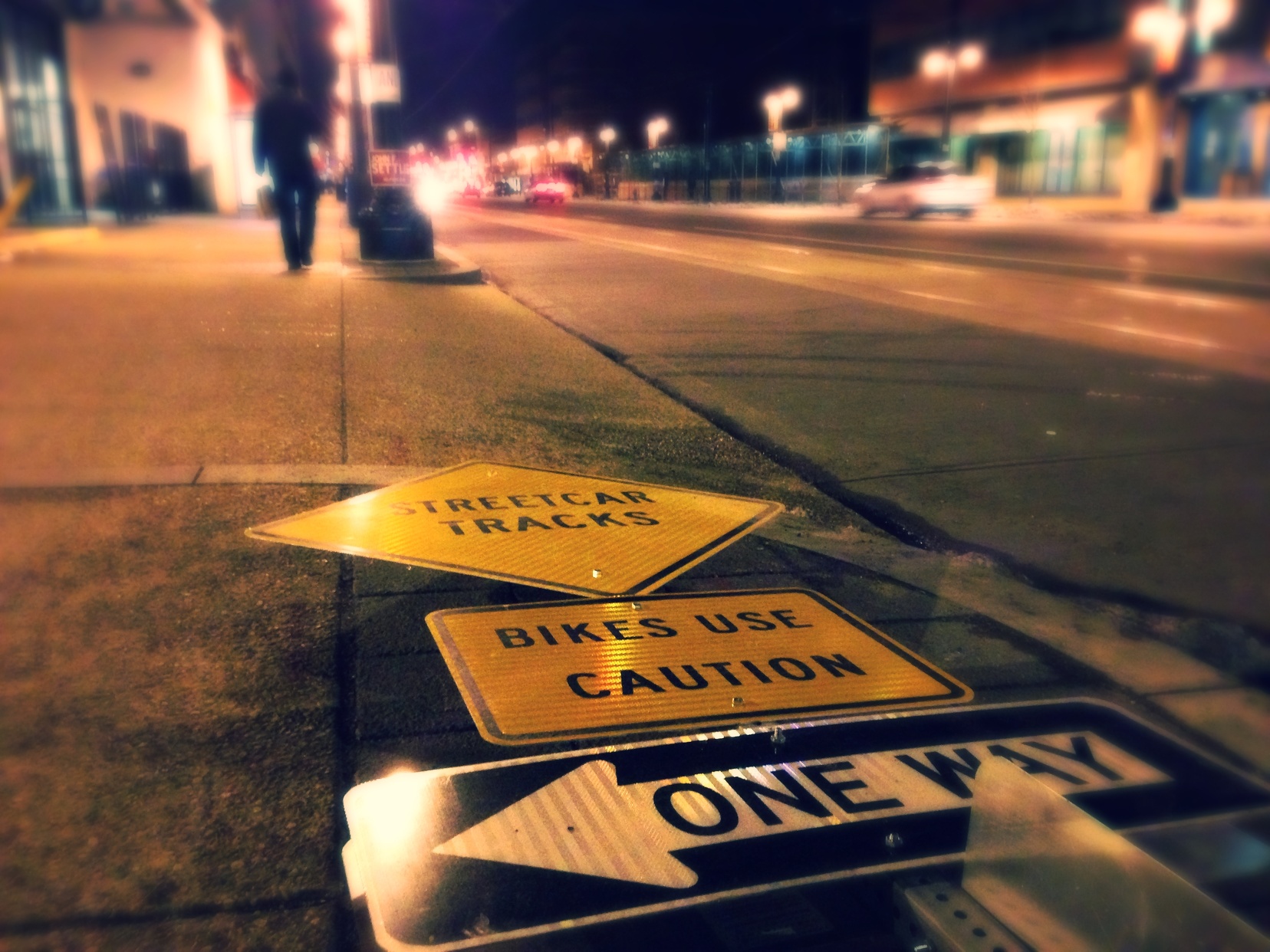Let’s take a look at what they plan. Of course, the plans are subject to change.
 |
| X marks the spot of the bikeshare desert |
United will work with the District to install at least one Bikeshare docking station of an undetermined size. On certain high volume days, United will partner with Capital Bikeshare to create a corral, allowing users to park their bikes with using the typical docking procedure.
The stadium plan notes that there are five stations along the northern edge of the study area that contain a total of 113 docking stations; however, they are a half-mile away. While the corral system may work on certain game days, the lack of additional station may make it difficult to dock bikes on typical days or days when United does not request a corral. The half mile walk, if the station nearest to the stadium is full, may discourage Bikeshare use. The District, or some other entity, may hopefully provide additional docks.
As part of United’s marketing plan to encourage getting to the stadium by bike, they may provide discounted bikeshare memberships to season-ticket holders in lieu of or in combination with any parking discounts.
Street and Trail Facilities
Along the First Street SW entrance, which is considered a private street, DC United will install enough bike racks to accommodate at least 90 bicycles. This area will be shared with pedestrians and potentially vehicular traffic, also, the street may only be open on game days.
In public space along 2nd Street, United is working with the District to include an as-yet-determined number of bicycle racks in public space. Also, permanent and temporary way-finding signage along the bike route on game days to direct people towards the bike valet location and to other bike parking locations. Temporary cones and barriers could also be used along the access routes to direct bicycle traffic to the Stadium before the match and away from the Stadium at the end.
Like Nationals Stadium, United will have a free bicycle valet service. United will monitor the amount of available bike parking and add more racks or more space to the valet as needed to accommodate demand. The plan suggests that 60 percent of bike parking spaces would be served by bike racks and the remainder accommodated by the bike valet system, with most of it centralized along the north and east sides of the Stadium as more cyclists are likely to be traveling from these directions.
 |
Planned bike infrastructure, with rebuilt South Capitol Bridge
Gorove / Slade – Zoning Commission |
The District is also considering creating a two-way protected bike lane along 2nd Street SW as addressed in the Buzzard Point Framework Plan, which United supports in its proposal. That plan calls for a protected bicycle lane along Potomac Avenue / R Street that connects to the existing bike lanes on Potomac Avenue across South Capitol Street and a protected bike lane along 2nd Street that will ultimately be part of an extended Anacostia Riverwalk Trail, a part of the Anacostia Waterfront Transportation Plan.
Also, the plan recommends improved pedestrian and bicycle connectivity by increasing sidewalk widths, decreasing vehicular lane widths, improving intersection controls, and organizing curbside restrictions “helping to create a more inclusive environment of all modes of travel”.
As part of the planned reconstruction of the South Capitol Street – Fredrick Douglas Bridge, the trail would be extended under the bridge and connected to the Buzzard Point neighborhood at S Street, SW. According to the Transportation Improvement Program, which coordinates and outlines when and how the area’s larger infrastructure projects are completed, the reconstruction of the bridge is funded and could commence in 2017 or early 2018.
Working with the Bicycling Community
To encourage visitors to get to stadium events by bike, United will partner with bicycling-related organizations like the Washington Area Bicyclist Association (WABA). This includes holding special promotions that focus on bicyclists to include creating apps or websites encouraging bicycling, providing bike-specific swag, and having bike-to-game days with planned activities and prizes. Additionally, DC United states that it will coordinate with the WABA on specific strategies to create a bike friendly environment at the stadium.
Below is the bicycle section of its transportation plan:







